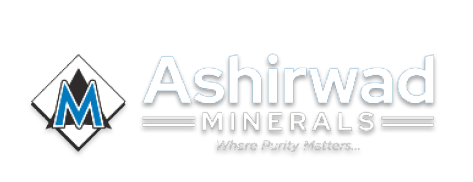The use of Talc powder for Transparent pipe is growing rapidly in popularity as it has a number of benefits for manufacturers and home owners alike. This article will discuss the various ways talc powder can be used for transparent pipes and the reasons why it should be considered by those looking for the best way to protect and optimize their pipes. We will also provide examples of how using talc powder can increase efficiency, reduce costs and make maintenance much easier.
What Is Talc Powder?
Talc powder is a finely ground form of the softest mineral on earth, talc. It is lightweight and porous, making it ideal for a variety of applications such as coating and lubricating products. Talc powder is also hydrophobic, meaning it will not absorb moisture from the air or from any piping system. This makes it ideal for use in any non-porous material, including transparent pipes.
Benefits of Using Talc Powder
Talc powder is beneficial for transparent pipes because it improves the flow of liquids and gasses. Since talc powder is so hydrophobic, it acts as a form of lubrication that allows for a safer and smoother flow for liquids and gasses. This means that the pipes are less likely to clog or break due to sudden changes in pressure or temperature.
Furthermore, talc powder is also used to protect the pipes from corrosion and other forms of damage. By coating the inside of the pipes with talc powder, the pipes become more resistant to temperature fluctuations and corrosion that can occur due to the presence of certain chemicals. This can help to extend the life of the pipes and keep them looking good for longer.
Making The Most Of Talc powder for Transparent pipe
Talc powder is also used to help reduce costs and increase efficiency when it comes to piping systems. By coating the pipes with talc powder, contact between different materials is minimized, making it possible for liquids or gasses to flow through the pipes without as much resistance. This reduces the amount of energy that is needed to keep the system running efficiently, resulting in lower energy bills.
Furthermore, talc powder can also be used to reduce the risk of leaks. The talc powder creates a barrier between different materials, making it more difficult for liquids and/or gasses to escape. This helps to make sure that the system runs as efficiently and safely as possible.
A Reducing Friction: Talc powder is effective for reducing the coefficient of friction between surfaces in contact with each other when using transparent piping. The dry talc powder also ensures that a uniform layer is maintained on the transparent piping to reduce internal surface energy and allow surfaces to move more freely. In addition, friction generated can also increase inner pipe temperature and create unwanted noise pollution. The talc powder can act as a lubricant on the inner and outer surface of the pipes which helps to reduce noise levels and temperature.
B. Improving Clarity and Durability: Applying talc powder to transparent pipes creates a smooth surface and increases surface clarity. by smoothing the surface, dirt and debris become trapped less easily and fewer particles remain adhered to the pipe surface. This can improve the overall life of the pipe and also minimizes any tints that are created by foreign particles on the surface. Additionally, the corrosion resistance of Talc powder helps to increase durability of the pipelines exposed to intense chemicals which is especially beneficial in industrial and plumbing areas.
C. Cost-Effectiveness: Taking into account the advantages discussed above, the overall cost of using talc powder and transparent piping can be highly beneficial. The maintenance cost can be lower due to the reduced need to replace and repair the pipes. In many cases, the talc powder can be applied in a spray form which is a cost-effective method for delivery. Furthermore, the need for spare parts can also be reduced by reducing the wear and tear over the years of use.
How to Apply Talc Powder
Talc powder is most often applied to transparent pipes by either spraying or brushing it on. Alternatively, it is also possible to purchase pre-coated pipes, which are already coated with talc powder and ready for use. This makes it much simpler to apply and ensures that the application is even and consistent.
Examples Of Talc Powder Use
Talc powder is used in a variety of different applications and industries, from food and beverage processing to automotive and aerospace engineering. For example, it is often used as an anti-corrosive coating for pipes and heat exchangers in chemical plants and oil refineries. It is also used to coat machine parts and mechanical components that may be exposed to high levels of friction.


